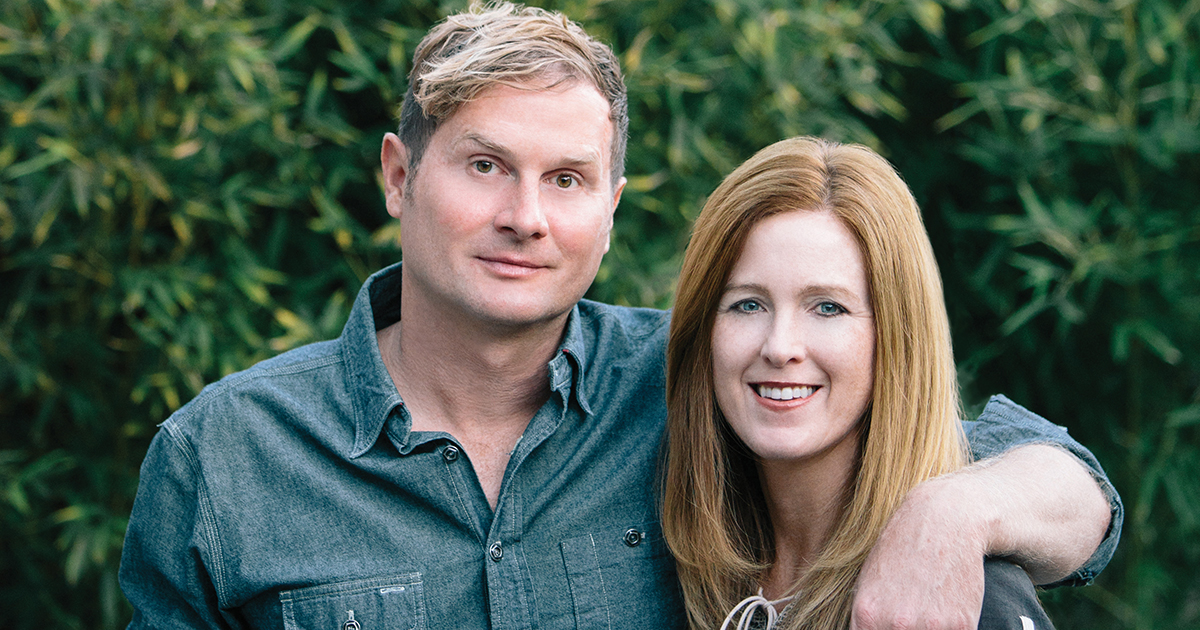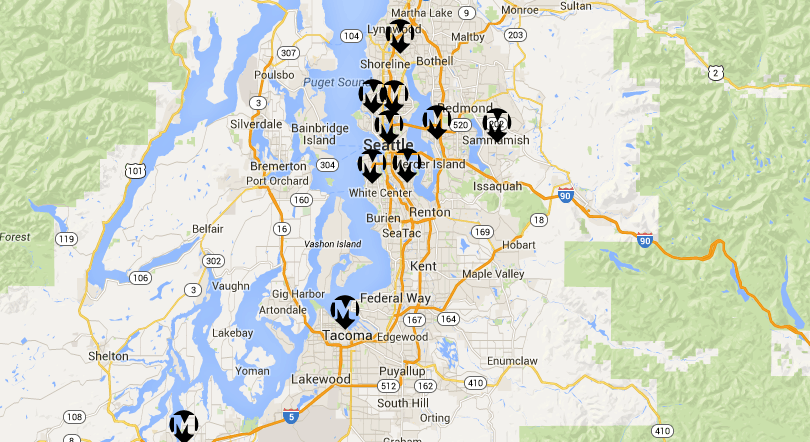
Rob Bell has had a tumultous career. From popular megachurch founder to one of the most controversial figures in modern Christianity to Oprah’s tour partner, he’s drawn intense criticism, but also gained a devoted following.
This week, Bell and his wife, Kristen, released their new marriage book, The Zimzum of Love. We talked to the couple about the book, the give and take of marriage and what exactly “zimzum” is.
Can you all define that word in the title of the book ‘zimzum’ and tell us what that is about?
Kristen: It’s what happens when you create space in your life for somebody you love and at the same time, they’re doing the same thing for you. First it’s just you. You have your life, your interests, your goals, the things that you want out of life. And then what happens is you meet somebody, some people call it falling in love, but something in you starts to shift and you find their well-being as compelling as your own. Your center of gravity expands. It used to just be you, but now it’s you and this other person. When this happens, what you’re doing is you’re creating space in your life for this person you love to thrive, and at the same time they’re creating space in their life for you to thrive, and this creates space between you that has an energy to it. So that is the zimzum of love.
Rob: The word ‘zimzum’ is actually an old Hebrew word. It said that before there was anything, there was only the divine, so for something to exist that wasn’t the divine, the divine had to essentially withdraw or contract into the divine self in order to create space that wasn’t God. I had stumbled across this in studying something years ago, and I was like, “Wow, creating space for another being to thrive—that’s like what you do in marriage!”
In the book, you really talk about how this energy between you manifests itself and has to be protected and nurtured in different ways. Can you dig into that a bit?
Rob: We are integrated beings, so thoughts, emotions, moods, negativity, bad energy … People talk about juju and vibes—we have all this language for that which we cannot access with our five senses. We can’t taste it or touch it or feel it and yet we know it’s real. Often what happens in marriage is you bring your whole self to the space between you and often, people have brought this whole world of issues they’re dragging into the space and they’re not even aware of it. It’s almost like a turbine—like it’s a whirling pattern of energy that whatever you drop into it is magnified, which is why you can have a knock-down drag-out fight and you realize it started with a really small off-handed comment.
The flip side is, the smallest act of kindness can endure for years. This space is incredibly responsive to whatever you put into it.
What we wanted to do with that section of the book is show people, you bring your whole self to this space and the idea that you can hold dimensions of your being back is simply not true. You’re both bringing your whole selves, they’re both in that space between you. That’s why marriage can be so achingly difficult and heart breaking. It’s also why it can be extraordinary and euphoric.
If a couple is reading your book, what do you hope are their next steps from engaging with this zimzum of love?
Rob: I would say at the most primal gut level before anything else, our hope is that for couple that are just barely hanging on, this book would remind them of that initial zimzum love that got them into this in the first place. Sometimes it’s that I have this person, no matter how difficult this journey is, no matter how much they drive me crazy, we have each other, we have a partner to go on the adventure with. At some basic level, there’s a mystery to what it means to give yourself to another. So in light of that, now let’s get some help and start moving forward.
Kristen: Another thing we talk about in the book is that we’re always figuring it out. Each person has a unique personality and each couple is going to have a unique situation. In the book,we refer to it as the conversation that never ends—there are just all these things that we are in the process of working out.
I think sometimes we hear, “I need to work on my marriage”—we hear the word “work” in regards to marriage. I think sometimes we need to lighten that up alittle bit and sometimes the best thing we can do is look at our marriage in a sense of “We need to play at our marriage.” There’s something that happens when we can hold everything a little looser, even when you are struggling and in crisis, I think there’s a release that happens when you just take deep breath and say, “OK. We can figure this out. We got into this because we love each other, and we can do this.”
What advice would you give people to be able to explore this energy that is between then and explore what it is they bring in that so affects their relationship?
Kristen: We refer to this exercise that our therapist has couples do, and it’s really enlightening. There are some keywords that he puts down like; “money,” “sex,” “holidays.” Words like this that we have all kinds of assumptions about based on how we grew up, what our families did. A lot of times, those assumptions are subconscious. We don’t even know that we have them or have expectations about how things should be.
I think that’s what happens with a lot of couples when they first get married is they start running into these things that they didn’t know that they have differences on. Money is a huge one. We all have assumptions even how much you share about your financial situation with other people or what you spend your money on, there’s just all kinds of things to uncover there, and I think the more you can become aware of all those things, you can have conversations and figure out how the two of you are going to do things.
Rob: Yeah, that’s our advice to the young couples you’re speaking of: Have no fear whatsoever. Go into the heart of all these assumptions and expectations and hopes and dreams and obstacles. You can journey all the way into the heart of it. You can find out what you brought to the space because you both brought all kinds of ideas and have no fear. Every time the two of you share just a little bit, you learn a little bit more about who you are and how you got here and what made you who you are. All it does is illuminate and enlightened and help you move forward.
Kristen: I think especially if you return the intention of the zimzum, which is, “I care about your well being and you care about mine.” Returning to that foundation, there’s nothing that you can’t work through.
Rob: So take the women that has all these fears that theres not going to be enough money or a guy who has a huge trigger on anger. Go into the heart of that, unpack it, get a spiritual director, priest, a guide, therapist, somebody. Go into the heart of all that stuff and find out what’s there. All that it will do is free the two of you so that the love can flow more freely.
Why do you think people are afraid to do that?
Rob: Very few people were given the emotional tools to navigate their interior life. You have to go to driver’s ed to get your driver’s license, you don’t have to do any training in your interiors, and that’s the place from which we all live. We’re haunted by our own ghosts, we’re terrified by what we perceive as past failures. The more you know your interiors, the more you understand why you do what you do, why you react, how you react. It can only make you a more fully integrated and healthy person, and the greatest gift you can give this person is to be healthy yourself.






















